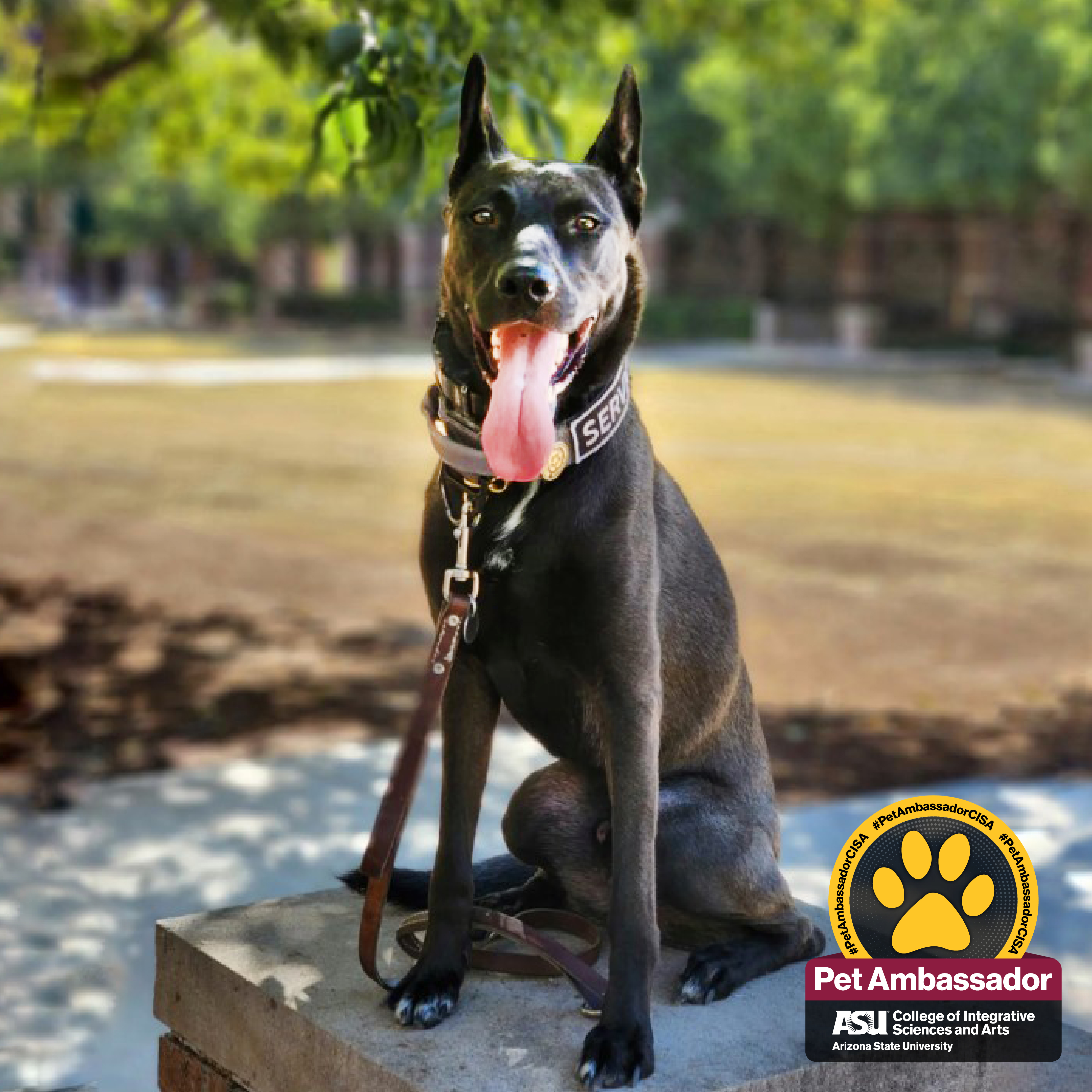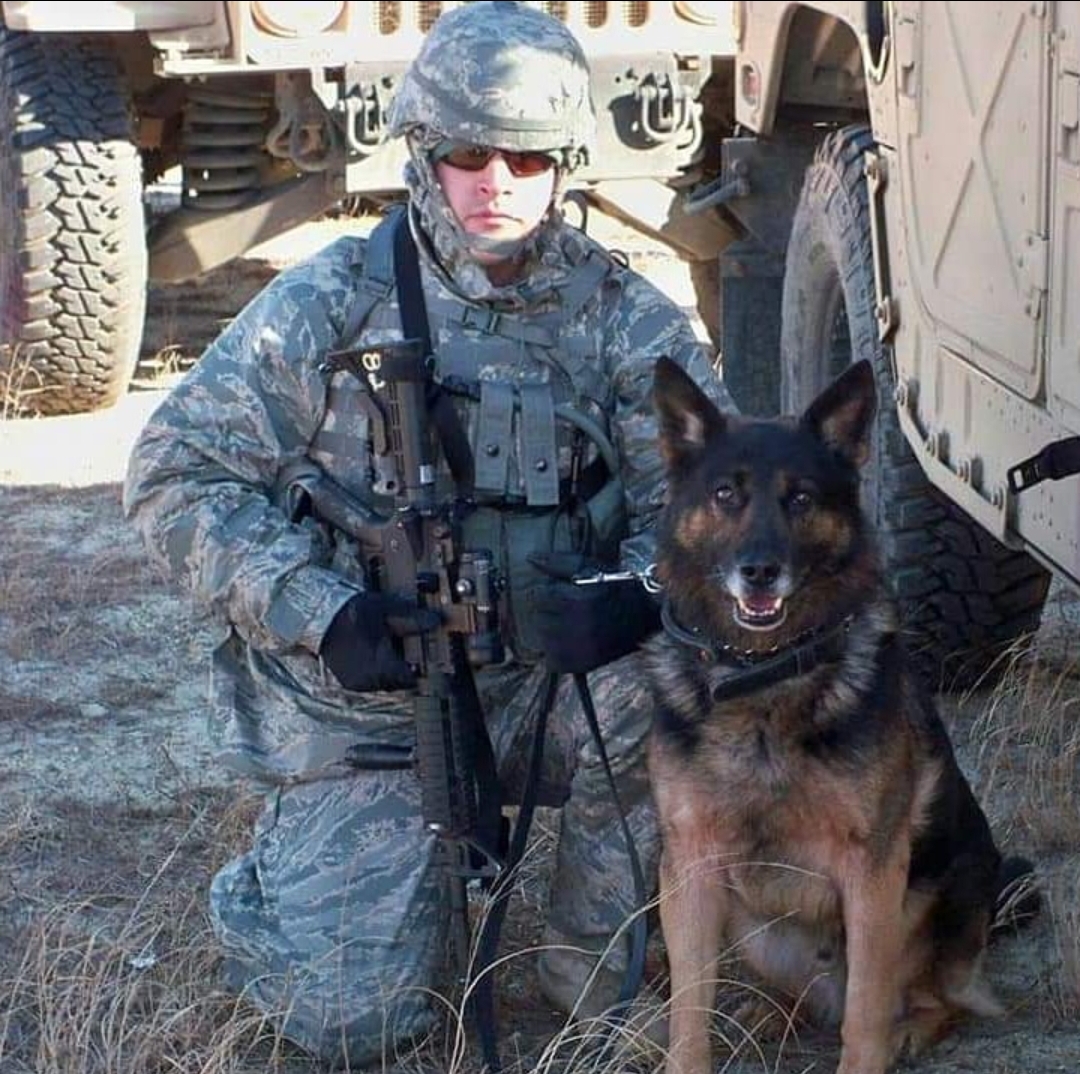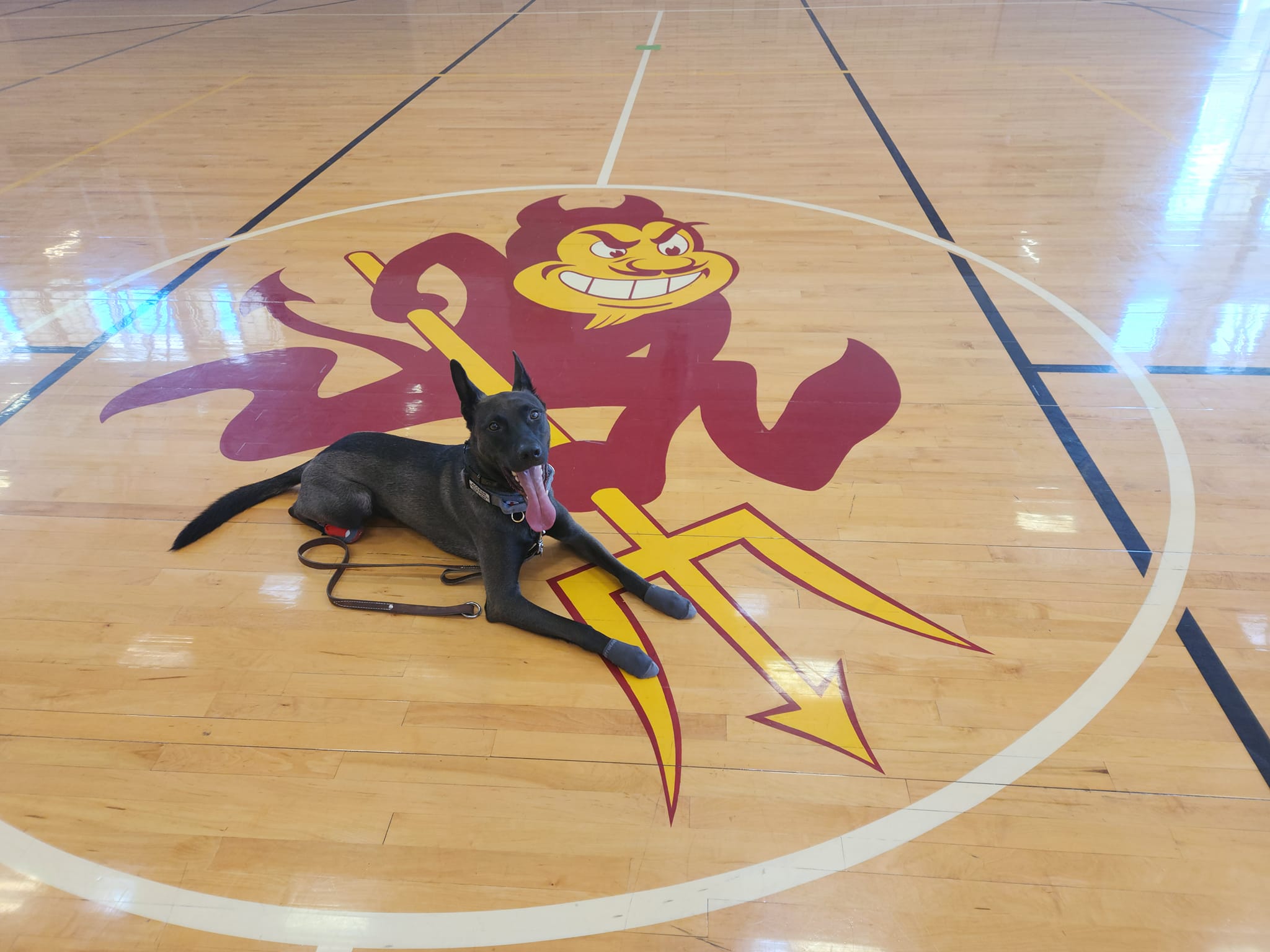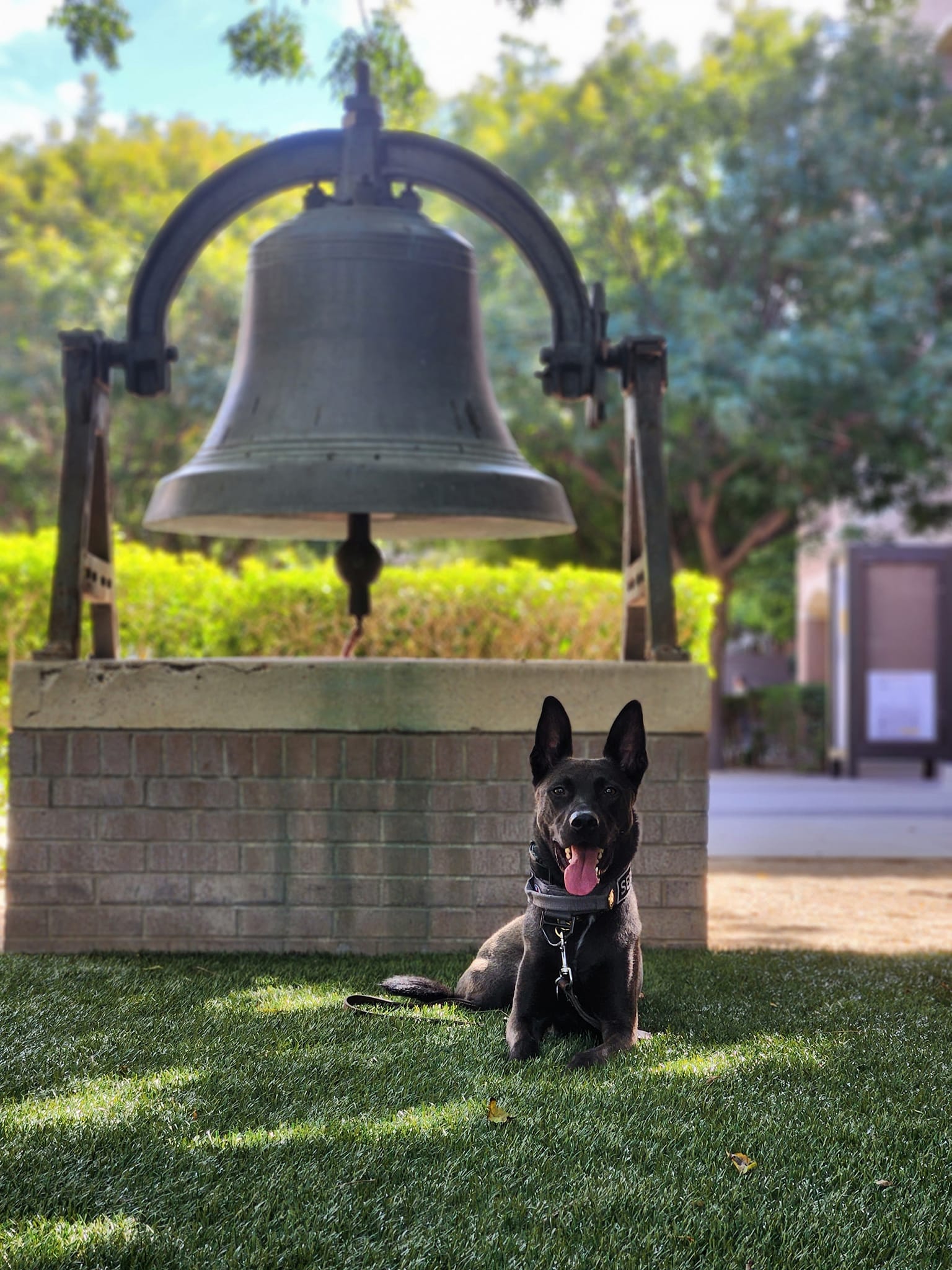
CISA Pet Ambassador Program

Follow Loki
Instagram: @mybattle_loki
Loki is a god dog
Ambassador Loki is a psychiatric service dog and the official mascot for ASU's Student Veterans Organization. He is on a personal mission to enlighten the veteran population about the benefits service dogs can bring to their lives.
New beginnings
Had you met Loki in his early days, you'd have been hard pressed to say he was born for greatness. At only nine weeks, he found himself with health issues — and up for adoption for the second time. But as fate would have it, a military veteran looking for his next service dog would stumble across Loki’s ad and change his life trajectory.
Derek Wilson found Loki’s Craiglist ad only hours after it was posted, and he knew this was the dog he was looking for.
Loki was a cute Belgian malinois/canine puppy but he was clearly struggling. He couldn’t keep any food down, so his first trip with his handler was to the vet. His exam was encouraging and the doctor felt a high-protein diet could be the answer. Derek tried different foods and over the next six months, Loki became a happy, healthy pup and was ready for training!
New tricks for the trickster
He’s a smart dog, so it was no surprise how quickly Loki learned all the basics. But then the global pandemic hit and his socialization training went on pause. So Loki and his handler switched gears and focused on task training that helped mitigate his handler’s disabilities.
Loki returned to official training as soon as he could and he earned his Psychiatric Service Dog (PSD) status.
Together, Loki and Derek are attending Watts College for Public Service and Community Solutions. Loki proudly wears his induction pin on his collar every day as a reminder to his handler that they are in this together.
Honoring our heroes
Arizona State University student and military veteran Derek Wilson honorably served his country in the U.S. Air Force for more than a decade. His tenure included deployments to South America, the Middle East and stateside, protecting Americans during hurricanes and other natural disasters.
But what made his service to the country so remarkable was his everyday job as a security military working dog handler.
Military working dogs and their handlers are highly trained security personnel who are ready to protect and defend military bases around the world. The specialist and their loyal canine partner are a dynamic team, who live, work and play together 24/7, for the length of the dog's career.
Derek had a chance to work with several four-legged warriors, including MWD LLuck, MWD Lee, MWD Mirko, MWD Rex, and MWD Cito. All of them left an indelible mark on his life. But one dog in particular, MWD Brix F183, helped him realize the importance of their work, as they spent the evening with soldiers at the Pat Tillman U.S.O. Lodge in Afghanistan.
Weary from their deployment, Derek and Brix entered the lodge, desperate for rest and relaxation. The company of U.S. Army soldiers who were already settled in made space for Brix and Derek.
“ I was extremely tired when I went inside,” said Derek.
“They welcomed Brix and I like we were meant to be there.”
Before long, Derek was asleep; he doesn’t know how long he was out, but when woke up, he had a mesmerized audience of soldiers staring at Brix, who was devotedly staring at Derek, keeping a watchful eye on his sleepy partner.
Brix brought excitement and joy to the lodge. His positive energy transfixed the soldiers who, only hours earlier, were standing before an “angel flight” saying goodbye to a fallen soldier.
“It was then that I recognized that dogs could help people through traumatic moments in their lives.” Derek recalled. “I sat back and watched as Brix helped many soldiers through their grief that day.”

Bonds of service
Commentary by Lecturer in preveterinary medicine Julie Murphree
Exposure to or witnessing an incident that is potentially life-threatening and capable of causing psychological shock is crucial in the diagnosis of post-traumatic stress disorder (PTSD). Military personnel have a greater risk of developing PTSD than members of the general population due to their exposure to combat situations, which often trigger the condition. Although the clinical manifestation of the disorder may vary, indicators of PTSD include reliving the traumatic event through flashbacks or nightmares and avoiding stimuli connected with the frightening experience. In addition, those with PTSD may encounter feelings of detachment from reality which can have destructive impacts on close partner relationships. Long-term effects of combat-related PTSD can involve increased alcohol and drug use, participation in risk-taking behaviors and heightened threats of interpersonal violence and psychosis. PTSD is further known to increase a person’s suicide risk.
Recent research has shown that pet companionship can improve integration into the community among people with serious mental illness. Veterans have testified that partnering with a service dog boosted their feeling of safety, assisted in their management of the symptoms and impact of PTSD and resulted in an improvement in emotional regulation and anger management. Service dogs have also been known to reduce anxiety and the misuse of alcohol and prescription medication.
Some veterans whose dogs have woken them from nightmares reported improved sleep quality, which therefore reduced their fatigue and enhanced their mood. Others have stated that their relationship to their dog was crucial in preventing suicide due to their sense of care and concern for the dog or the diversion brought on by the dog’s ability to sense the suicide attempt and poke their nose at the individual in distress. Many have likened the experience of having a service dog to that of being in a team — a critical element for a successful environment within the military,
The responsibilities of caring for their service dog has given veterans a purpose and has provided a sense of routine — a reason to get up in the morning. All in all, such modifications have led to enriched relationships and increased participation in meaningful daily occupations.
Here’s to you, Loki, a true ambassador in your efforts to reach out to all military veterans in need! It is no wonder that veterans with PTSD have referred to service dogs, such as yourself, as their psychologist, their psychiatrist, their GP and their best friend!



